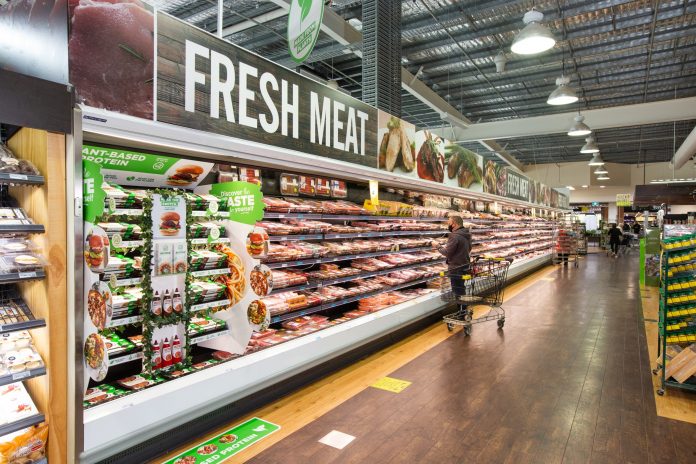Australia’s plant-based meat sector saw a 46% increase in grocery retail sales in FY20 (Food Frontier, ‘State of the Industry: Australia’s Plantbased Meat Sector’, March 2021), with industry insiders acknowledging that this momentum is clearly being maintained.
Reflecting on the current climate, v2food General Manager ANZ Rory Gilbert tells Retail World that despite floods, fires and Senate inquiries, the sector has been showing “strong growth” in Australian retail.
“[Plant-based] burgers and sausages, in particular, saw record sales over the summer [2021/22], driven by exciting new products for the barbecue season, with some retailers seeing growth higher than 50% versus YA in these segments [IRI Synergy, Quantium, and Industry Sources],” he says.
“This is in line with the trends seen in the UK and the US, and this rapid growth is driving new brands, both from Australia and abroad, to enter the retail market here. With a multitude of new products and increased advertising spend from competing new brands, this growth trend is expected to continue or even accelerate into 2023.”
Leading trends
Sustainability and product quality are among the trends leading plant-based meat’s growth.
“Australians looking to play their part in reducing CO2 emissions remain a key driver of new shoppers entering the category, with 42% of [surveyed] Australians looking to eat less meat, or none at all,” says Mr Gilbert referring to a 2019 report, ‘Hungry for plant-based: Australian consumer insights’ (King T, Weber J).
He adds that increasing product quality is another big factor, pointing to a demographically representative survey of 1220 Australians, conducted by open-source research program Catalyst, in March this year.
“Three in four [surveyed] shoppers who first tried plant-based in the [previous] 12 months described their experience as positive,” he says.
“This represents an increase in positive experiences of 7% compared with those that first tried plant-based meat two or more years ago.”
Fry Family Food Co (Fry’s) Global Brand Lead Tammy Fry also addresses a number of consumer demands and trends.
These are “really innovative” products or ranges that meet “very specific” needs; good quality ingredients that are traceable; ease of use and convenience (“consumers don’t want it to be more complicated because they are choosing the plant-based options); and the “taste experience”.
Addressing challenges
Category challenges include supply and availability, education, and access to raw materials.
Mr Gilbert says supply has been challenging this year across all supermarket sections, with plant-based products, of course, among those affected.
But he adds that Australian made products have been less impacted.
“v2 has been blessed in that sense, and able to find solutions to most of the supply chain challenges over the past few months,” he says.
A further challenge, notes Mr Gilbert, is finding the right balance between depth of stock to allow new shoppers to trial, without overloading shelves and increasing wastage.
“Of course,” he says, “brands that are making noise and investing in both above-the-line and below-the-line activities are finding that wastage isn’t a significant challenge.”
Ms Fry says that among challenges affecting Fry’s are a lack of understanding about the importance of the category, education of consumers, and support for this among retailers, as well as the availability of top-quality plant protein raw materials.
“It would be fantastic to see more work put into growing the plant protein raw material offering around the world,” she says. “In fact, LiveKindly Collective, Fry’s holding company, is working to create a number of agricultural projects to try to tackle this.”
Read more about the growing category in the June issue of Retail World.





